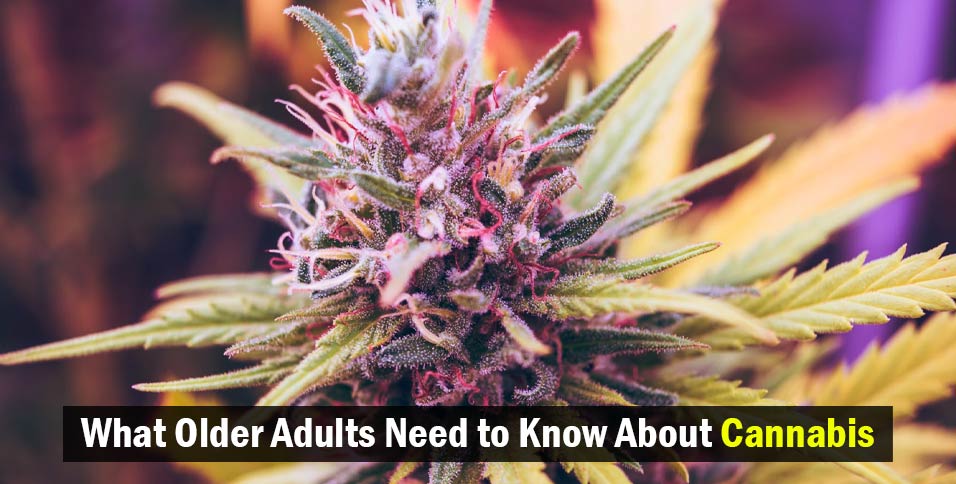CBD, a compound derived from marijuana, lacks the psychoactive component responsible for inducing a high. Typically available in oil form, CBD is also found as an extract, vaporized liquid, and oil-based capsule. An array of CBD-infused products, including food, beverages, and beauty items, can be found online.
Numerous individuals turn to CBD oil to alleviate symptoms associated with various common health concerns, including some older adults. According to a 2020 nationally representative survey by Consumer Reports, 20% of Americans aged 65 and above reported trying CBD oil, up from 14% in the previous year of 2019. Understand the conditions CBD oil may address and its appropriateness for use by elderly individuals.
Considerations for Purchasing CBD
- Determine your needs and preferred form: Reflect on why you want CBD, and check which format suits you best. CBD is available in various forms like oils, pills, drops, and lotions.
- Evaluate THC content: While some CBD products include minimal amounts of THC, if you seek THC-free options, consider hemp-derived CBD.
- Investigate the origin: The manufacturing process of CBD varies. Examine the label. Always check the label for additional ingredients that could affect your health or safety.
- Exercise caution: Be wary of brands making grandiose claims, such as curing cancer or aiding heart disease. These claims are unverified and illegal. Leafy Doc can offer access to medical cannabis and connect elderly patients to licensed medical marijuana doctors online for patient evaluations.
Does CBD Oil Work?
Each of us possesses an endocannabinoid system, a vital component that strives to uphold our body in equilibrium and ensure optimal functionality. For example, during hot weather or intense physical activity, this system regulates our heart rate and moderates our body temperature through perspiration.
Optimal bodily function thrives on balance, and the endocannabinoid system plays a crucial role in preserving that equilibrium, regardless of external influences. In instances of imbalance, such as inflamed joints from arthritis or injury, CBD oil supports your endocannabinoid system, empowering your body to effectively manage and alleviate the issue.
CBD for Older Adults
CBD oil appears to be an emerging treatment option for older individuals. Unlike THC, which is also derived from the cannabis plant, CBD is predominantly found in marijuana at higher levels.
Some seniors may receive medical marijuana prescriptions from their physicians, even though it’s not lawful in all states and some individuals prefer not to experience the associated euphoria. In these instances, CBD serves as a viable substitute.
CBD offers therapeutic effects without inducing a high and is legal across the United States. Extracted from a cannabis hemp strain, it contains .3% THC or less, ensuring you receive all the advantages without concerns about intoxication.
Effectiveness and Application of Medical Cannabis for Seniors
As people age, they might turn to cannabis to help manage various symptoms like chronic non-cancer pain, cancer-related pain, sleep issues, neurological symptoms, and for palliative care during end-of-life stages. However, concrete evidence supporting its use in this specific patient group remains limited.
Chronic Pain
Many older individuals frequently turn to medical cannabis for pain management. Chronic pain stands out as a primary reason medical cannabis is prescribed. While a study by Nugent et al. suggests some benefit of cannabis for neuropathic pain, evidence for other chronic pain types remains inconclusive. The National Academies of Sciences support cannabis’ efficacy in treating chronic pain in adults.
Sleep Disturbance
Many people have turned to exogenous cannabinoids to address sleep issues. However, research on their effectiveness for sleep remains limited. A review by Babson et al. suggests that CBD might help with insomnia, REM sleep disturbances, and daytime drowsiness. There is limited evidence supporting the impact of sleep on chronic pain. Prolonged use of CBD followed by sudden discontinuation could result in withdrawal symptoms and sleep disruption. Additionally, THC might degrade sleep quality over time.
Neurological Disease
Patients with spinal cord injuries and multiple sclerosis reported feeling better, but physician assessments did not confirm these improvements. This aligns with the American Academy of Neurology’s guidelines on complementary and alternative medicine for multiple sclerosis, which recommend cannabis extracts for short-term relief of spasticity and pain. A meta-analysis by Whiting et al. indicated that CBD might help with spasticity in these patients, though the results were not statistically significant.
Cancer Pain
Cancer pain poses a common challenge for both cancer patients and survivors. Its prevalence varies from 30% to 90% depending on the cancer diagnosis, type, and stage. This pain can stem from cancer treatments or the disease itself.
With its multifaceted nature, cancer-related pain intertwines with social and psychological elements, often showing better responses to pharmacological interventions compared to chronic non-cancer pain. Given the higher occurrence of cancer in older individuals, it’s understandable that cancer-related chronic pain is more frequent in this demographic.
Endnote
More thorough scientific research through randomized controlled trials is essential to confirm the suggested benefits of cannabis and to gain a deeper understanding of the scope and impact of its common side effects.
Also Read: Regulatory Challenges and Opportunities in the CBD Industry














